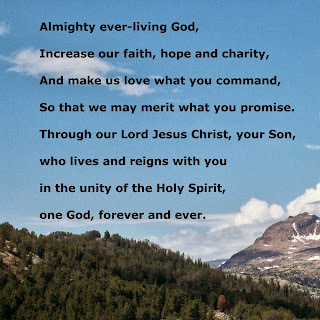
Someone asked him,
"Lord, will only a few people be saved?"
He answered them,
"Strive to enter through the narrow gate,
for many, I tell you, will attempt to enter
but will not be strong enough.
The story is told that the great comedienne W.C. Fields, known for humor, heavy drinking and womanizing was discovered in a garden shortly before he died, studying the King James Version. Asked what he was doing he explained, "I am looking for loopholes."
In the popular imagination, salvation and damnation are seen as verdicts given by the Supreme Judge upon our demise. We expect to stand before Saint Peter sitting on a judge's bench before the Pearly Gates. Given that scenario, most of us hope God's law is rife with loopholes, and that the Merciful One -- God, Peter or Mary -- will find an applicable one for my case.
In today's gospel, Jesus offers a different approach. He urges us to strive to enter through the narrow gate. It might entail some effort and strength. Perhaps some will not be able to lift the gate, or climb the mountain, or swim the current. Many will not be strong enough.
There is good evidence, even in those schools that dare to study such things, that people who practice their religion cope with disappointment, failure, grief and catastrophes better than those who don't. Despite the good intentions and high expectation of couples on their wedding day, their relationships sometimes collapse when something terrible happens. The death of a parent or child, a financial setback or health crisis is simply too much for the young hopefuls. Hurting, disappointed, and confused one or both become irritable and snappish; they are not prepared to minister to one another. Where they always expected the other to be there for me, they cannot be there for each other.
Relationships with God falter for the same reason. Ignoring the obligation of worship day after day and Sunday after Sunday, unfamiliar with the spirit, attitudes or words of prayer, they complain that God has abandoned them. But, unfamiliar with his Presence, how do they know he is absent?
Proverbs 17:17 advises us, "A friend is a friend at all times, and a brother is born for the time of adversity.' More recently, the wise advise us: "If you want a friend, be a friend." The adage holds with God as well.
In today's gospel Jesus urges us to build the strength we need. Strong friendships along with strong habits of sacrifice, personal discipline and prayer -- both devotional and liturgical -- prepare us to enter through what may be a very narrow gate.












 Lectionary: 661
Lectionary: 661